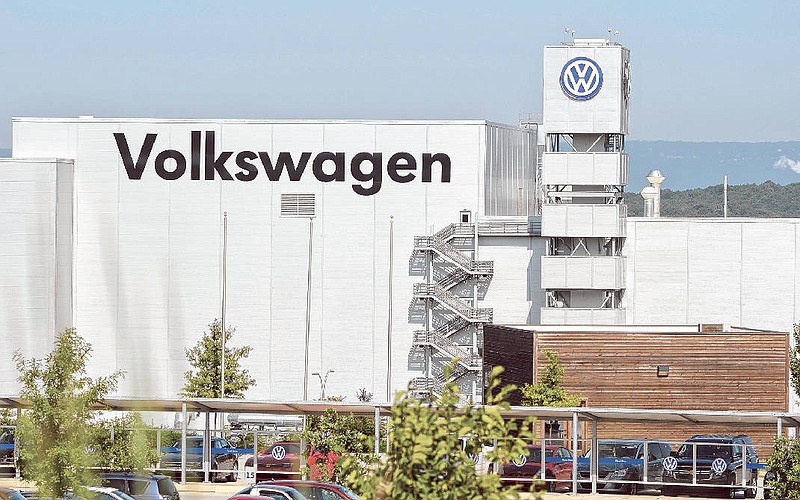The state of Tennessee has sent Volkswagen a letter saying the company that has a plant in Chattanooga was past due in filing a performance report related to jobs and investment involving an earlier incentive.
But, VW said it has answered all the state's questions, adding the automaker had been in discussions since the filing of its annual performance report as officials had asked for backup data and clarifications.
"Thus, I am not sure why the letter was sent, as we were continuously providing all the information they requested," said Ian Leavy of VW.
At the same time, the founder of a Chattanooga citizens watchdog group lauded the state for sending Volkswagen the letter late last year and "holding them accountable for reporting on whether the company has met its commitments in the tax break agreement approved in 2014."
"Public officials need to make sure that Volkswagen has met previous commitments before approving additional incentives for the recently announced expansion for the electric SUV," said Helen Burns Sharp of Accountability for Taxpayer Money.
Tennessee Gov. Bill Lee's budget last year included a $50 million state cash grant for Volkswagen's planned $800 million electric vehicle plant in Chattanooga on which it recently broke ground.
VW already was the most richly incentivized company ever in Tennessee, having received more than $800 million in federal, state and local perks since landing in the Volunteer State in 2008.
VW employs 4,000 workers who make the Passat sedan, the Atlas sport utility vehicle and a five-seat version of the SUV, and it plans to add nearly 1,000 more jobs making a battery-powered SUV.
On Nov. 26, the state Department of Economic and Community Development sent VW the letter related to an incentive agreement dated July 14, 2014, involving the state, VW and the city's Industrial Development Board.
"Baseline reports are due on or before the 60th day following the accountability agreement's effective date," said the letter. It called on VW to submit the reports with supporting documentation within 30 days.
Leavy said in a Dec. 19 email to city attorney Phil Noblett that it had been in discussions with the department as it asked for the backup data.
"Regardless, we have now answered all their questions and received the confirmation" that the state has all it needs, Leavy said. He said he didn't think the matter needed to appear on the agenda for the board's January meeting, which was Monday.
Noblett said at the meeting that the letter and email were included in the panel members' information packets but no action was needed.
Sharp said in her own email to the board that Volkswagen has been a positive addition to the community and local tax incentives were warranted for Volkswagen in 2008.
"In addition to public benefit in terms of jobs and investment, it was one of those rare instances where subsidies may have tilted the scales since the automaker may have had two equally compelling choices [most likely, Huntsville]," she said. "However, we agreed to give them the sun, the moon, and the stars when the sun and the moon might have been enough to ensure their location."
But, Sharp said, the wording in the incentives agreement with state and local officials needs to change relative to the stormwater fee.
She said the 2008 agreement exempts Volkswagen from the responsibility of paying that fee.
"The language says that any stormwater fees assessed shall be credited against any in-lieu of tax payments," Sharp said. "Since their only in-lieu payments are school taxes, the stormwater fee is currently subtracted from the taxes going to schools. In 2018, $644,000 was deducted from its school tax bill. If this practice continues until 2040, the school system would not receive about $19 million."
Also, she said, in the 2014 agreement for the Atlas expansion project, the jobs language is weak as it says that "The company agrees to use its best efforts."
"The MOU did not include strong clawback language to protect existing taxpayers," Sharp added. Such language says that a company must uphold its end of the bargain or else taxpayers have some money-back protection.
"The city and county need to adopt policies to guide decisions on tax breaks to make sure taxpayers and workers and neighborhoods are protected," she said.
Contact Mike Pare at mpare@timesfreepress.com or 423-757-6318. Follow him on Twitter @MikePareTFP.
